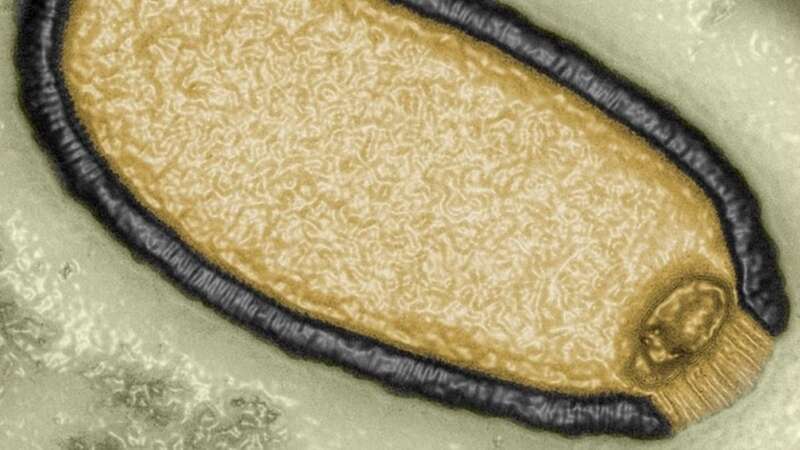

Scientists have revived of a "zombie virus" that has been frozen in permafrost Siberia for over 48,000 years.
Jean-Michel Claverie, a French scientist, took tests on earth samples from permafrost to determine whether any of the viral particles were still capable of causing infection.
Claverie, who is also Emeritus professor of medicine and genomics at the Aix-Marseille University School of Medicine in Marseille, has been studying these so-called "zombie viruses" to gain a deeper understanding of the potential risks they pose.
In 2014, the team of researchers successfully revived a virus extracted from permafrost, making it infectious after being dormant for 30,000 years by inserting it into cultured cells.
To ensure safety, the chosen virus targeted only single-celled amoebas and posed no threat to animals or humans.
 Man fined £165 after outraging the internet by dying puppy to look like Pikachu
Man fined £165 after outraging the internet by dying puppy to look like Pikachu
 Jean-Michel Claverie is a French scientist and a Emeritus professor of medicine and genomics (Jean-Michel Claverie/IGS/CNRS-AM)
Jean-Michel Claverie is a French scientist and a Emeritus professor of medicine and genomics (Jean-Michel Claverie/IGS/CNRS-AM)The researcher replicated the experiment in 2015 with a different type of virus that also targeted amoebas.
In his latest research, published in the journal Viruses in February, Mr Claverie and his team isolated several strains of ancient virus from multiple samples of permafrost taken from seven different places across Siberia.
On top of the two he had revived previously, those latest strains represent five new families of viruses.
The oldest strain was almost 48,500 years old, based on radiocarbon dating of the soil, and came from a sample of earth taken from an underground lake 16m (52ft) below the surface.
The youngest samples were 27,000 years old and were found from the stomach contents and coat of a woolly mammoth's remains.
 The team of researchers who are working on the viruses (Jean-Michel Claverie/IGS/CNRS-AM)
The team of researchers who are working on the viruses (Jean-Michel Claverie/IGS/CNRS-AM)Mr Claverie told CNN: “We view these amoeba-infecting viruses as surrogates for all other possible viruses that might be in the permafrost.
“We see the traces of many, many, many other viruses.
“So we know they are there (but) we don’t know for sure that they are still alive.
“But our reasoning is that if the amoeba viruses are still alive, there is no reason why the other viruses will not be still alive, and capable of infecting their own hosts.”
Permafrost is a layer of frozen soil and rock that blankets around one-fifth of the Northern Hemisphere, providing a foundation for the Arctic tundra and boreal forests in regions such as Alaska, Canada, and Russia for thousands of years.
 Dog who 'always melts hearts' with his smile hopes to find a loving family
Dog who 'always melts hearts' with his smile hopes to find a loving family
 Permafrost is a layer of frozen soil and rock that blankets in regions such as Alaska, Canada, and Russia (AFP/Getty Images)
Permafrost is a layer of frozen soil and rock that blankets in regions such as Alaska, Canada, and Russia (AFP/Getty Images)Due to its unique properties, permafrost acts as a natural time capsule, preserving the mummified remains of extinct animals, such as two cave lion cubs and a woolly rhino, which scientists have been able to excavate and study in recent times.
Permafrost is an ideal storage medium because it is not only cold but also an environment devoid of oxygen, and light cannot penetrate it.
But current day Arctic temperatures are warming up to four times faster than the rest of the planet, weakening the top layer of permafrost in the region - and leaving scientists fearing what it could expose beneath.